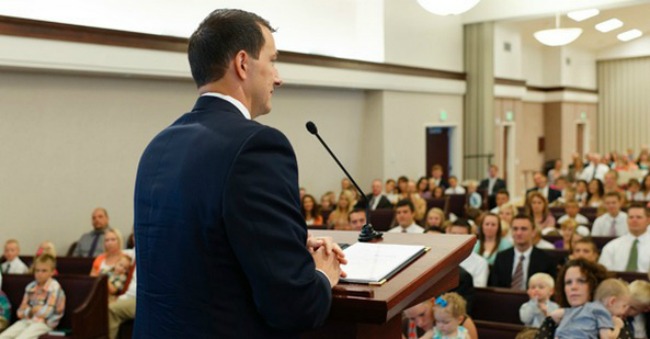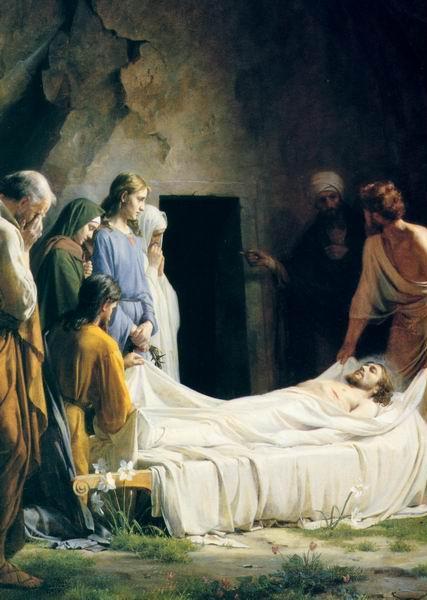Question
Gramps,
I am a Branch president in a small branch in India. I have a question about recognizing talents in Sacrament Meeting. Can we do that in Sacrament Meeting? I feel this may put down others who feel they don’t achieve anything in their life. Or bring some negativity that the Leaders are biased in recognizing some while not recognizing others. Please help me to understand this.
Raja
Answer
Hello Raja,
Thank you for your question. In addition, thank you for your efforts and sacrifice as you serve as a Branch President.
I would like to share a couple of thoughts with you regarding:
1. Talents & recognizing/acknowledging them.
2. Sacrament meeting & it’s purpose.
Talents and recognizing them: Our Father in Heaven has blessed us all with specific gifts/talents/abilities, many of which we developed and brought with us from the pre-exisitence. Elder Marvin J. Ashton says:
God has given each of us one or more special talents. … It is up to each of us to search for and build upon the gifts which God has given.
While we are all blessed with talents, some are more visible and easily showcased i.e. playing a musical instrument, singing a solo, public speaking or painting a masterpiece. In contrast, other talents, equally as valuable if not more so, are perhaps harder to spotlight i.e. understanding others, compassion, or patience, etc. The spectrum of talents that one might posses can vary widely. I agree with your concern that we may fall short in only recognizing the “seen” talents and perhaps fail to acknowledge the “unseen”.
So should we acknowledge individual talents in Sacrament Meetings? I would suggest as a rule of thumb, that it would be wise to avoid doing so.
Let’s take a moment and look at the purpose of Sacrament Meeting. Elder Russel M. Nelson, in his talk entitled Worshiping at Sacrament Meeting shared the following:
Planning Sacrament Meeting: With these doctrines in mind, bishoprics and branch presidencies need to plan sacrament meetings thoughtfully in order to keep the meetings focused on the Lord and His Atonement, His example, and the doctrines of the gospel.
He continues by saying:
A typical sacrament meeting will include: Recognizing children who advance from Primary, members called on missions or other assignments, attainments of young men and young women. —Presenting names of brethren to receive or advance in the Aaronic Priesthood, names of new ward or branch members.
Church Handbook 2 (CHI 2) section 18 shares the following regarding the purpose of Sacrament Meeting:
“Partake of the sacrament, worship, provide gospel instruction, perform ordinances, conduct ward business, and strengthen faith and testimony…
Recognizing 8-year-old children who have been baptized and confirmed.
Presenting names of brethren to receive or advance in the Aaronic Priesthood.
Recognizing young women as they advance in their classes
As we review the counsel of Elder Nelson and read CHI 2, we should easily see a clear pattern/format for our Sacrament Meetings. First and foremost, Sacrament Meeting is a time for us to focus on the Savior. In addition, in the beginning of Sacrament Meeting, the Branch President or Ward Bishop can and should acknowledge a variety of achievements (i.e. Young Womanhood Recognition Award, Duty to God, Faith in God) or other church milestones (i.e. a Young Woman advances from Beehive to Mia Maid) that have taken place in their unit. The difference is that the unit leader is sharing church-related achievements & milestones. Achievements and milestones are potentially obtainable by the “many” versus only spotlighting a talent that might be limited to the “few”.
Many talents and accomplishments have their own avenues/meetings for highlighting them without the need to share them in Sacrament Meeting. Some specific events to highlight individual accomplishments could be: Scout Court of Honor, Young Women Recognition Night, Seminary Graduation, etc.
Here are some alternative ways/places a unit could share the talents of it’s membership without involving the unit leader during Sacrament Meeting.
1. Branch Bulletin
2. Branch Bulletin Board
3. Branch Facebook/Social media page
4. Branch Talent/Accomplishment activity night
5. Auxiliary newsletter
6. Etc.
My suggestion for not only you, Raja, but other unit leaders as well, is to stick to the counsel of Elder Nelson and the guidance of CHI. While having a desire to spotlight a person’s talents and accomplishments is a worthy gesture, I would suggest that Sacrament Meeting is not the time or place to do so. Unless prompted by the Spirit otherwise, I would suggest being consistent in this too. Without doubt, feelings will eventually become hurt if it appears some individuals are unfairly not acknowledged in their talents. Focus your efforts on the Savior for Sacrament Meetings and then you can’t go wrong.
Here is a video that has helped me focus on the Purposes of Sacrament Meetings:
Again, thank you, Raja for your continued efforts in serving the Lord.
Gramps






